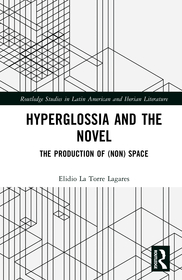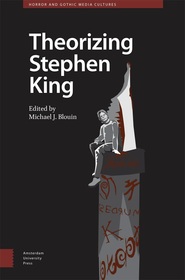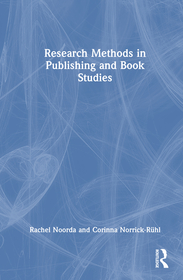
Hyperglossia and the Novel
The Production of (Non) Space
Series: Routledge Studies in Latin American and Iberian Literature;
- Publisher's listprice GBP 145.00
-
69 273 Ft (65 975 Ft + 5% VAT)
The price is estimated because at the time of ordering we do not know what conversion rates will apply to HUF / product currency when the book arrives. In case HUF is weaker, the price increases slightly, in case HUF is stronger, the price goes lower slightly.
- Discount 20% (cc. 13 855 Ft off)
- Discounted price 55 419 Ft (52 780 Ft + 5% VAT)
Subcribe now and take benefit of a favourable price.
Subscribe
69 273 Ft

Availability
Not yet published.
Why don't you give exact delivery time?
Delivery time is estimated on our previous experiences. We give estimations only, because we order from outside Hungary, and the delivery time mainly depends on how quickly the publisher supplies the book. Faster or slower deliveries both happen, but we do our best to supply as quickly as possible.
Product details:
- Edition number 1
- Publisher Routledge
- Date of Publication 3 December 2025
- ISBN 9781032976228
- Binding Hardback
- No. of pages240 pages
- Size 229x152 mm
- Language English 700
Categories
Short description:
A radical theorization of hyperglossia as a post-narrative condition, it explores how language, identity, and space collapse into recursive textual excess. It charts a poetics of uncontainable meaning, proposing hyperglossia as the dispositif of our saturated, spectral, and increasingly unreadable present.
MoreLong description:
Hyperglossia and the Novel: The Production of (Non) Space theorizes hyperglossia as a critical threshold in literary, philosophical, and media discourse—an excessive, recursive textual force that resists closure, coherence, and containment. Drawing from Bakhtin, Derrida, Foucault, Glissant, and Morton, this work constructs an interdisciplinary topology where narrative is displaced by semiotic proliferation. Through readings of Tokarczuk, Bolaño, Braschi, Paz Soldán, and Condé, the book explores how post-narrative texts perform ontological saturation, linguistic instability, and hauntological displacement. Hyperglossia is not a mere excess of language; it is a dispositif, a mechanism of epistemic drift and resistance that destabilizes the relation between text, space, and subject. Engaging literary maximalism, posthumanism, colonial hauntings, and digital textuality, this book maps a poetics of rupture—a world where language spills into non-space and refuses the end. Rather than offering synthesis, it proposes a drift: a movement toward meaning that cannot be finalized, only continually reinscribed.
MoreTable of Contents:
I. From Hyperglossia to the Post-Narrative Condition (Introduction)
II. Hyperglossia As Epistemic Shift in Olga Tocarkzuk’s Flights
III. Technofeudalism and the Semiotic Machine: Reading Paz Soldán’s Iris Through Hyperglossia
IV. Mangrove as Method: On Hyperglossia, Dispositif, and Narrative Disintegration in Maryse Condé’s Crossing the Mangrove
V. Toward a Textual Topology of Excess: Hyperglossia, Non-Space, and the Crisis of Narration in Bolaño’s 2666
VI. The Spiral That Explodes: Hyperglossia, Non-Space, and the Hauntology of Colonial Identity in Giannina Braschi’s United States of Banana
VII. The Gloss That Refuses to End: Writing the Unfinishable ([In]conclusion)
Index
More






